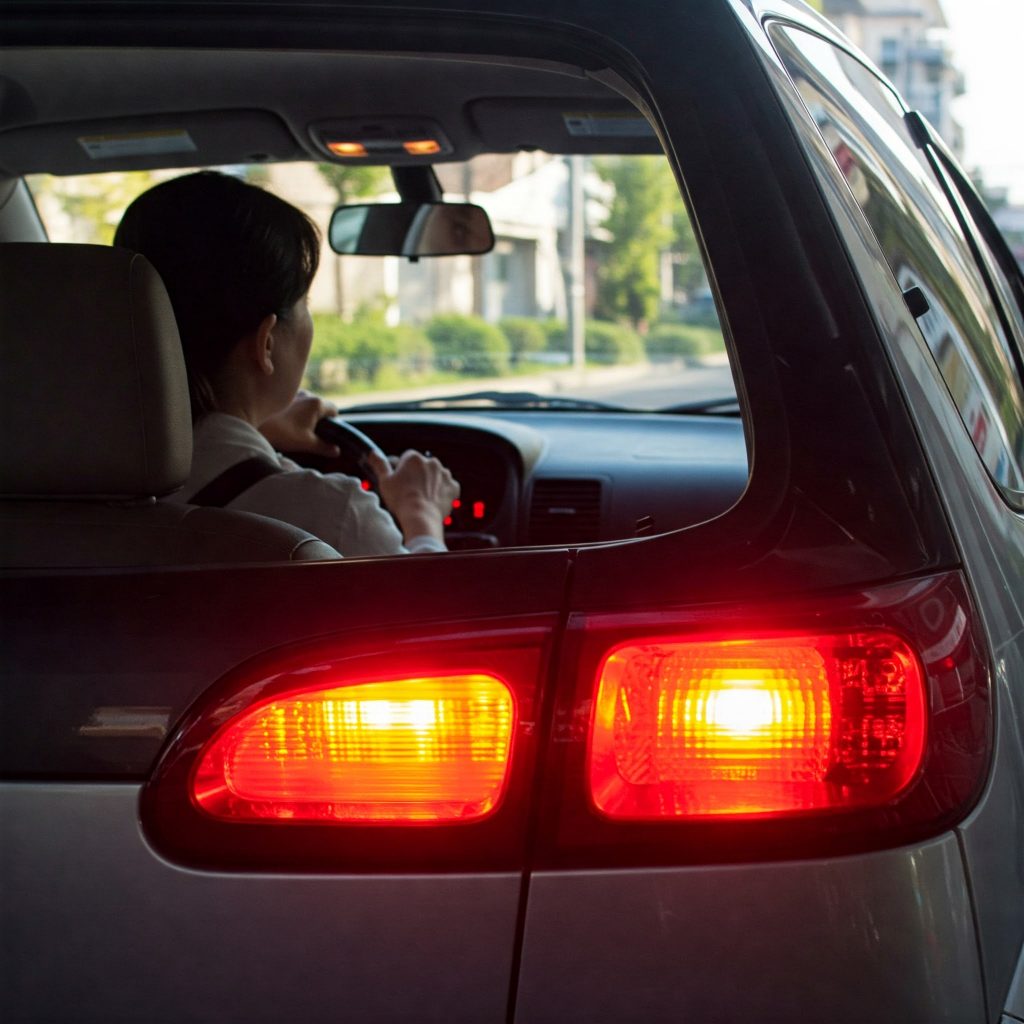Brakes aren’t something you think about—until they fail. When they’re working properly, they’re easy to take for granted, but the moment something goes wrong, they become the only thing on your mind.
Your braking system is your car’s most important safety feature, and ignoring warning signs can put you and everyone around you at risk.
If your car makes noises that sound like a haunted house every time you slow down—squealing, grinding, or screeching—it’s trying to tell you something.
That eerie soundtrack usually means your brake pads are wearing thin, and if left unchecked, they could wear down completely, leading to metal-on-metal contact that damages your rotors. At that point, stopping power is drastically reduced, and repair costs skyrocket.
Other red flags include a spongy brake pedal, vibrations when braking, or a car that pulls to one side when you slow down.
These symptoms indicate potential issues with brake fluid, uneven pad wear, or problems with the calipers and rotors. Regular inspections and timely replacements help prevent sudden failures and keep your braking system in top shape.
Brakes aren’t something you want to gamble with—when they start showing signs of trouble, listen to them.
Taking action early not only saves money on repairs but also ensures your car stops when you need it to, giving you peace of mind every time you hit the road.
Grinding, squealing, or a mushy pedal could mean worn-out brake pads or low brake fluid.
And if your brake warning light comes on?
That’s not just a suggestion—it’s a flashing neon sign telling you to get it checked before you end up testing your luck in traffic.
Your brakes are one of the most crucial safety features of your car, so it’s important to address any issues with them immediately. If you hear squealing or grinding noises when applying the brakes, this often means the brake pads are worn down and need replacing.
A pulsating or vibrating sensation when braking could indicate warped brake rotors, which require attention to maintain effective stopping power.
If the brake pedal feels soft, spongy, or goes all the way to the floor, there may be an issue with the brake fluid or air in the brake lines, which can seriously compromise your braking ability.
A high-pitched squeak or a metallic sound can also signal that it’s time to inspect your brake pads. Additionally, if your car pulls to one side when you brake, it could mean there’s a problem with the brake calipers or uneven brake pad wear.
Lastly, if you ever notice a burning smell while driving or after heavy braking, don’t ignore it—it could be a sign that your brakes are overheating. Overheated brakes can lead to brake fade, where they temporarily lose their ability to slow your vehicle effectively.
In extreme cases, excessive heat can cause permanent damage to the brake pads, rotors, or even the brake fluid, compromising your entire braking system.
This issue is especially common when driving downhill for long periods, towing heavy loads, or repeatedly slamming on the brakes in stop-and-go traffic. If you catch a whiff of something burning, pull over safely and give your brakes time to cool down.
Continuing to drive with overheated brakes can warp your rotors or lead to complete brake failure, putting you in a dangerous situation.
Routine maintenance, such as replacing worn brake pads and ensuring your brake fluid is at the proper level, helps prevent overheating and keeps your stopping power reliable.
If the burning smell persists or is accompanied by smoke, a soft brake pedal, or reduced braking performance, have your brakes inspected immediately. Staying proactive about brake health ensures your vehicle remains safe and responsive when you need it most.
Regular brake maintenance is essential for your safety, so don’t hesitate to visit a mechanic if you notice any of these signs.
Know when to replace your brakes, click here for more information.



